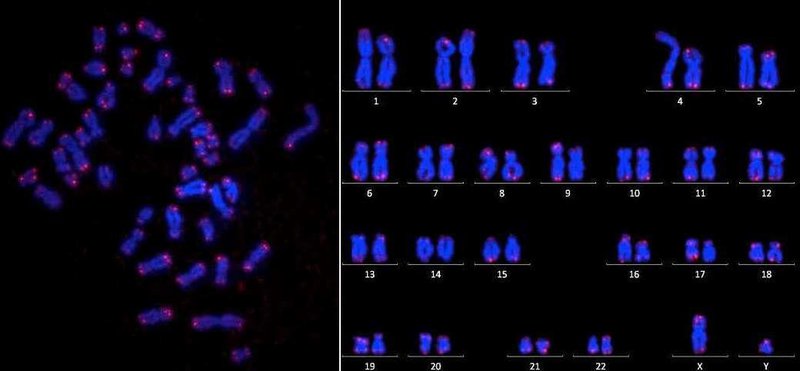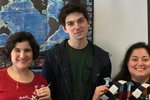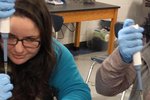NASA twin study results have exciting implications for the 2016 Genes in Space winning experiment.
NASA astronaut Scott Kelly recently spent almost a year in space. He happens to have an identical twin brother, Mark Kelly, also an astronaut. NASA took advantage of these remarkable brothers to conduct a controlled experiment on the effects of space on the human body, including DNA. While Scott was living in space NASA collected samples from him and from Mark on earth for analysis. You can read more about Scott and Mark and the twin study on NASA's website.
Recently released results show that, contrary to what was hypothesized, Scott's telomeres lengthened while he was in space. Telomeres are protective caps on the ends of chromosomes and are thought to shorten in response to stress and aging. While Scott's DNA had to be returned to Earth for analysis, Julian Rubinfien's 2016 winning experiment aims to develop methods for measuring telomeric DNA directly in space. If successful this could open the door to directly measuring telomeres in space and health monitoring of astronauts during long-term missions.

Photo credit - NASA
Posted in
International Space Station,
Winners.


